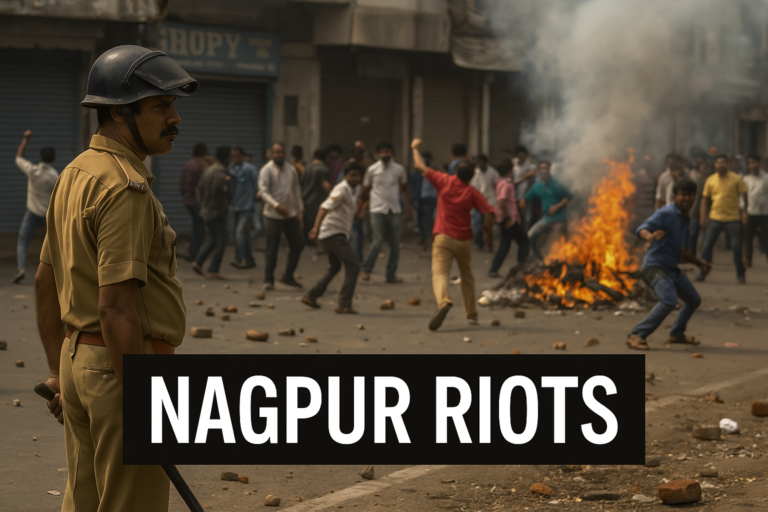
Aurangzeb’s tomb in Maharashtra stands at the center of a heated debate—should it be preserved as history or seen as a political statement?
Maharashtra has now become the latest battleground in India’s ongoing ideological war over history, as a result, as calls for the demolition of Mughal Emperor Aurangzeb’s tomb in Khuldabad, Maharashtra continue to intensify. Allies of Prime Minister Narendra Modi’s BJP have labeled Aurangzeb a “historical oppressor,” reigniting the centuries-old debate on his legacy. But is this a legitimate historical correction, or a politically motivated move to rewrite history?
Aurangzeb’s Tomb Demolition Controversy Unfolds
The demand to demolish Aurangzeb’s tomb in Maharashtra has once again sparked outrage and debate across India. Right-wing groups, therefore, claim that the Mughal ruler was a tyrant who persecuted Hindus, and that his legacy should not be preserved. On the other hand, historians warn that dismissing an entire era of Indian history based on modern political narratives could distort India’s rich heritage. (Read More)
Who Was Aurangzeb and Why Is His Tomb in Maharashtra Controversial?
Aurangzeb, the sixth Mughal emperor, ruled India from 1658 to 1707. His reign was marked by military expansion, religious orthodoxy, and heavy taxation on non-Muslims. Although his policies were often criticized, his administrative efficiency and contributions to infrastructure remain undeniable. Furthermore, his reign left a lasting impact on India’s political and cultural landscape. However, in the current political climate, his legacy is being selectively used to stir nationalist sentiments.
Political Rewriting of History: Aurangzeb’s Tomb in Maharashtra as a Symbol?
Critics, moreover, argue that the demand to erase Mughal contributions aligns with the BJP’s broader strategy of promoting a Hindu-first narrative. From renaming cities with Mughal heritage (Allahabad to Prayagraj) to removing Mughal rulers from history books, this is part of a larger movement to redefine India’s past.

Maharashtra Government’s Stand on Aurangzeb’s Tomb Controversy
The Maharashtra government has tightened security around Aurangzeb’s tomb, fearing communal unrest. As a precaution, additional security forces have been deployed. Despite the fact that no official order has been issued for demolition, the pressure from Hindutva organizations is mounting. The state government now faces a difficult decision—should it protect historical monuments or cater to rising nationalist sentiments?
Public Reactions and Experts’ Take
- Historians warn that erasing parts of India’s past could lead to a distorted understanding of its diverse heritage.
- Political analysts argue that such controversies conveniently surface before elections to polarize voters.
- Citizens remain divided, with some supporting the call for demolition, while others see it as an attack on pluralism.
What’s Next?
As the debate rages on, consequently, India now finds itself at a crossroads—between acknowledging historical complexities and politicizing the past for contemporary gains. Will Aurangzeb’s tomb in Maharashtra be the next historical site targeted in India’s ideological war? Or will India choose to preserve its past, warts and all?
📢 What’s your take on this controversy? Should history be rewritten to align with present-day narratives? Drop your thoughts in the comments below!
📍 Stay informed with unbiased reporting. For more news and updates, visit Suchak News. Keep visiting for the latest developments!
#AurangzebTomb #MughalHistory #HindutvaPolitics #RewritingHistory #MaharashtraNews #PoliticalDebate #BJPControversy #IndianHeritage #HistoryVsPolitics #SuchakNews




kuBIJsyr Sfciz JXf AhTQxq SnPBIwIf UqtT wLdN